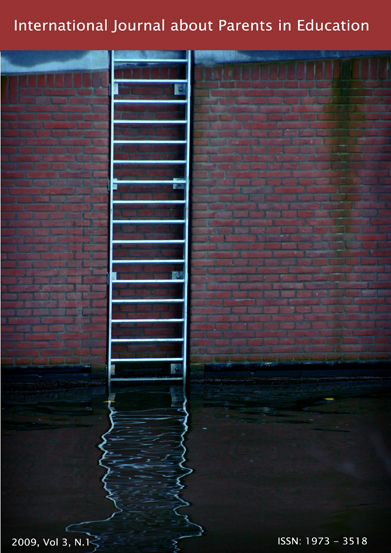Teachers and Parents – Partners with Different Expectations
DOI:
https://doi.org/10.54195/ijpe.18158Abstract
The purpose of the present study effected in 2007 was to explore the approaches to establishing cooperation between lead teachers and parents of third- and ninth-grade primary school students, and the quality of that cooperation. The study also sought to find differences and similarities in parent and teacher expectations within different areas of their cooperation. Data were obtained from a sample of 55 randomly selected primary schools from which 141 lead teachers of third and ninth grades and 810 parents of the students from those grades were included in the study. The study focused on the following areas of cooperation: school to home communications, parent influence on school decisions, and parent involvement in different school activities. The research indicated that the third- and ninth- grade lead teachers were mostly in agreement about the importance of parent involvement and as such represented a fairly homogenous group. The third-grade lead teachers were more open about actual involvement of parents in instruction than their ninth-grade colleagues who were more cautious and restrained. In contrast to the lead teachers that represented a relatively narrow professional group, parents' views were much more dispersed. Parent education was the best predictor of their readiness to get involved in the life and work of their children's school. This was especially the case with mothers who took part in formal school conferences more often than fathers. Whether the area in which the families lived was urban or suburban did not make any difference.





